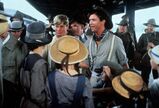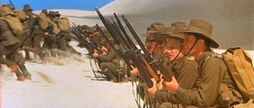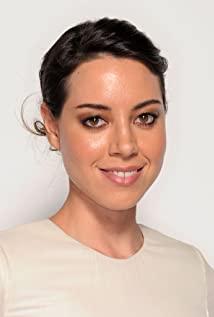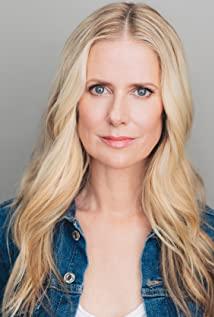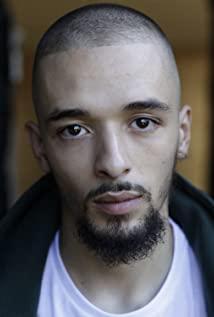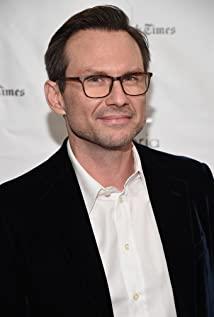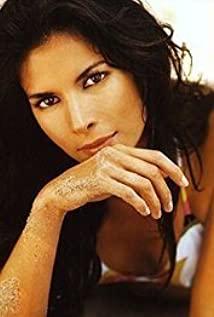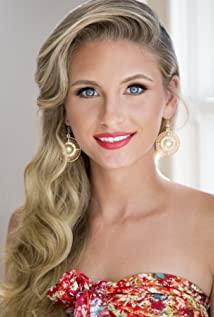-
Alphonso 2022-04-28 06:01:02
Gallipoli: the starting point of Australia's spiritual independence
A war-themed film did not spend much on the Turkish battlefield with live ammunition. On the contrary, a large amount of space was concentrated on the protagonist’s training grounds in Australia and Egypt before the expedition. Compared with general war films, this film is seldom filled with...
-
Alexane 2022-04-28 06:01:02
Gallipoli-meaningless sacrifice
The Gallipoli Peninsula is located at the entrance of the Turkish Strait, and its strategic location is extremely important. Once the peninsula is occupied, the Turkish Strait can be controlled, and the materials of the Allies can continuously assist Russia (if the battle between Britain and France...
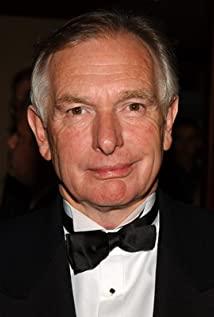
Peter Weir
Peter Weir (Peter Weir) , born in Sydney , Australia on August 21, 1944 , is an Australian film director, screenwriter, and producer.
In 1968, he directed the short drama "The Life and Times of the Reverend Buckshotte", which officially opened his career as a director. In 1975, directed the suspense drama " Picnic at Hanging Rock " released
[1]
. In 1982, directed the war drama " The Year of Living Dangerously ", which was nominated for the Palme d’Or at The 36th Cannes Film Festival
[2]
. In 1985, directed the crime thriller " Witness ", which won the Best Foreign Language Film Award from Japan's Akadem
[3]
. In 1989, he directed the feature film " Dead Poets Society " and was nominated for the Best Director Award at the 43rd British Academy Film Awards
[4]
. In 1990, he directed the feature film " Green Card " and was nominated for the best original screenplay at the 63rd Academy Awards
[5]
. In 1993, directed the thriller drama " Fearless ", which was shortlisted for the main competition unit of the 44th Berlin International Film Festival
[6]
. In 1998, he directed the feature film " The Truman Show " and won the Best Director Award at the 52nd British Academy of Film Awards
[7]
.
In 2003, he directed the war drama " Master and Commander: The Far Side of the World " and won the 58th British Academy Film Awards for Best Director
[8]
. In 2010, directed the feature film " The Way Back " released
[9]
.
Early Experience
Peter Weir was born in the family of a real estate developer in Sydney, Australia
, He left school without finishing the course after studying law and fine arts at the University of Sydney
. He assisted his father to work for a period of time and thus began his journey to Europe
. Returned to Australia after his Film Unit in the Commonwealth (federal film group) found a job
.
Performing Experience
In 1968, he directed the short drama "The Life and Times of the Reverend Buckshotte", which officially opened his director career. In 1971, directed the feature film "Three in a Row" co-starred by Serge Lazarev, Judy Mike Burnie, and Graham Bond. This was the first film directed by Peter Weir. In 1974, directed the suspense drama " The cars that ate parls " co-starring John Mayon, Chris Haywood and Bruce Spence
.
In 1975, based on the novel adaptation of the same name directed by Joan Lindsay's classic suspense drama " Picnic AT Hanging Rock " was released
by Helen Morse , Jacki Weaver , Anne-Louise Lambert cooperation starring
, the film tells the story of the early twentieth century a woman The story of the disappearance that happened at the school picnic
. In 1977, he directed the suspenseful drama " The Last Wave " co-starring Richard Chamberlain , David Gupilly , and Wavin Gray
. It tells the story of a lawyer's experience in investigating the internal killings of Australian Aborigines
.
In 1979, directed the thriller "Plumber" co-starred by Iva Kantes, Pam Sanders, and Judy Morris
. In 1981, directed the war film Garibaldi, co-starring Mel Gibson , Mark Lee, and Bill Kerr
.
In 1982, directed the war drama " The Year of Living Dangerously " co-starred by Mel Gibson , Sigourney Weaver and Linda Hunt
, which told the story of the coup against President Suharno in Indonesia in 1965. The
film won The 36th. Nominated for the Palme d'Or at the Cannes Film Festival
.
In 1985, directed the crime thriller " Witness " co-starring Harrison Ford , Kelly Ann McGillis and Joseph Sommer
. The film won the Best Foreign Language Film Award from Japan's Akademi . For this film
, he won the 58th Oscar Award Nominated for the Best Director Award and nominated for the Best Director Award
at the 43rd American Film and Television Golden Globe Awards
.
In 1986, directed the adventure drama " the mosquito coast " co-starring Harrison Ford , Helen Lydia Mirren and River Phoenix
. In 1990, directed the feature film " Dead Poets Society " starring Robin McLaurim Williams , Ethan Hawke and Robert Sean Leonard
. With this film, he was nominated for the Best Director Award at the 43rd British Academy Film Awards
and the 62nd Academy Awards Nominated for the Best Director Award
.
In 1990, he directed the feature film " Green Card " co-starring Gérard Depardieu and Rosalie Anderson MacDowell
. With this film, he was nominated for the best original screenplay at the 63rd Academy Awards
. In 1993, directed the thriller drama " Fearless " co-starring Jeff Bridges and Isabella Fiorella Elettra Giovanna Rossellini
, which was nominated for the main competition unit of the 44th Berlin International Film Festival
.
In 1998, directed the feature film " The Truman Show " starring Jim Carrey , Laura Linney and Ed Harris
. With this film, he won the 52nd British Academy Film Awards for Best Director
and 71st Academy Awards for Best director Award nominations
, the 56th American film and television Golden Globe Award for best director nomination
. Later, the film was selected as one of the "100 New Classics of Movies" by the American "Entertainment Weekly"
.
In 2003, directed the war drama " Master and Commander: The Far Side of the World " based on Patrick O'Brien's novel " Master and Commander: The Far Side of the World "
, which was produced by Russell Crowe and Paul Bettany and James D'Arcy co-starred
, telling the story of the life and death battle between the captain of the British battleship Marvel and the enemy.
With this film, he won the Best Director Award at the 57th British Academy of Film Awards
and the 76th Oscars Award for Best Director. Nominated
and nominated for the Best Director Award at the 61st American Film and Television Golden Globe Awards
. After that, he was selected as one of the "Top 40" films of the decade by the "Sunday Times" (British media)
.
In 2004, he won the 10th Critics' Choice Awards for Lifetime Achievement
. In 2010, directed the adventure drama " The Way Back " adapted from the novel "The Long Road: The True Story of Freedom "
by Slavomir Lavitch . It was released and starred
and narrated by Jim Sturgess , Colin Farrell and Sersh . The story of a few soldiers who escaped from the Gulag concentration camp in the former Soviet Union, went through a lot of hardships, climbed the Himalayas and finally reached India
.
In 2013, Peter Weir was invited to be the guest of honor at the 4th New York Chinese Film Festival
.
Personal Life
family situation
Peter Weir's father is a real estate businessman
.
Character Evaluation
Peter Weir uses intensive cultivation techniques to always allow the audience to touch an extraordinary depth. His works can often add a general nobility to the seemingly mediocre Hollywood traditional themes, which stems from his more full-bodied shaping of the characters. , Respect for their spiritual core, instead of treating them as spectacle visual effects and exaggerated dramatic props
.
Peter Weir is serious about his artistic pursuit and has strict requirements on the quality of his personal works. He always chooses relatively unpopular and higher-level themes, uses a subtle and poetic style, and uses a more innovative and adventurous approach to deal with movies. Introducing the old and bringing forth the new in the traditional Hollywood style, it shows that he has "choosing the good." Stubborn
.
Peter Weir is characterized by anti-Hollywood exaggeration and drama. The old-fashioned stories always make the audience shine under his lens
. In the film, he upholds a consistent attitude of reflection on reality, and there are often conflicts between individuals and the system
. In addition, although his films are not many, they are all very influential
.
Peter Weir's films have a kind of worry throughout, allowing the audience to see the unique character and civilization of Australia from the screen. He set out from Australia, a place on the geographic margin of the West, and made a powerful critique and reminder of the value of the West
. He is passionate about expressing mysterious atmosphere and exploring human behavior. At the same time, he is good at directing actors, conceiving shots, and accurately grasping the mood of the characters and the tone of the film
.
Extended Reading
Related articles
-
[first lines]
Jack: [to Archy] Deeper. Come on, deeper, deeper.
-
Archy Hamilton: G'day.
Mary: G'day.


